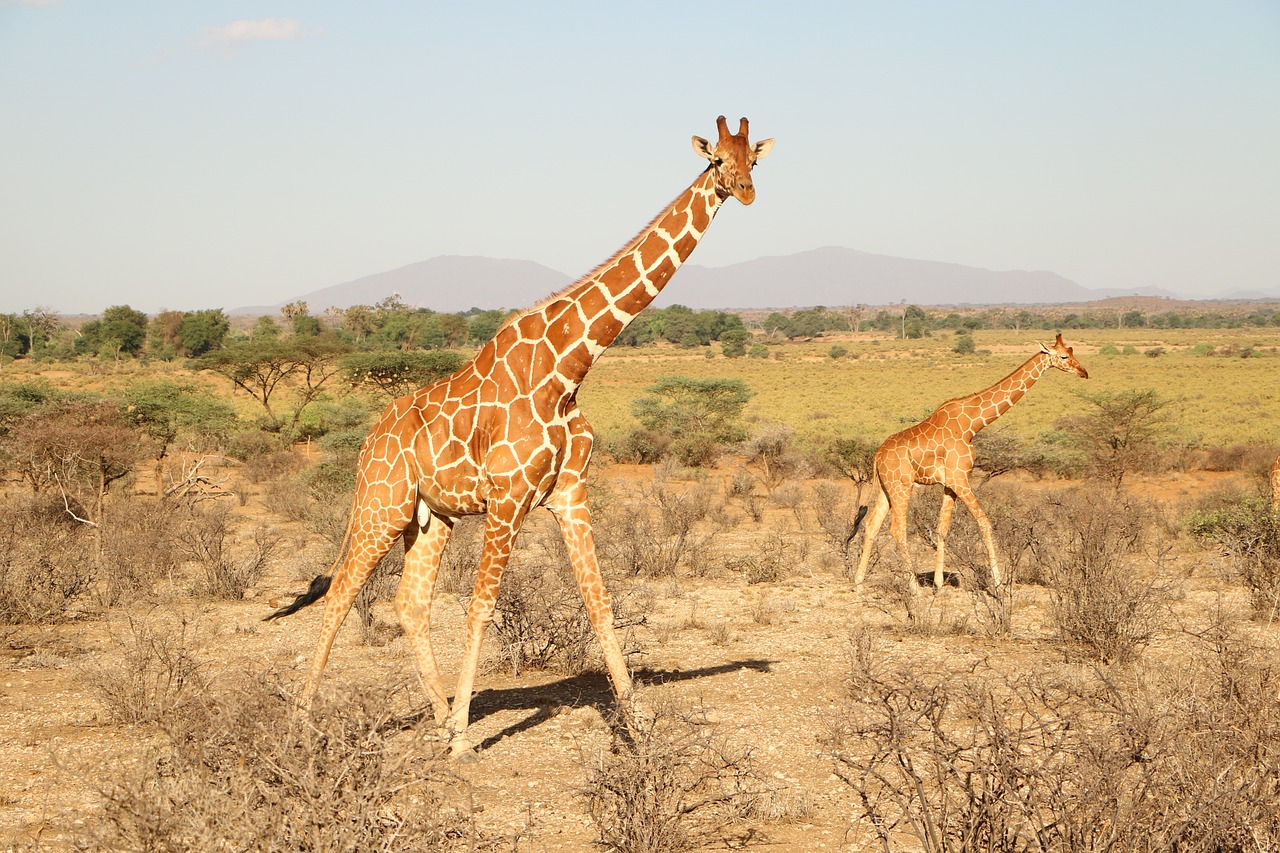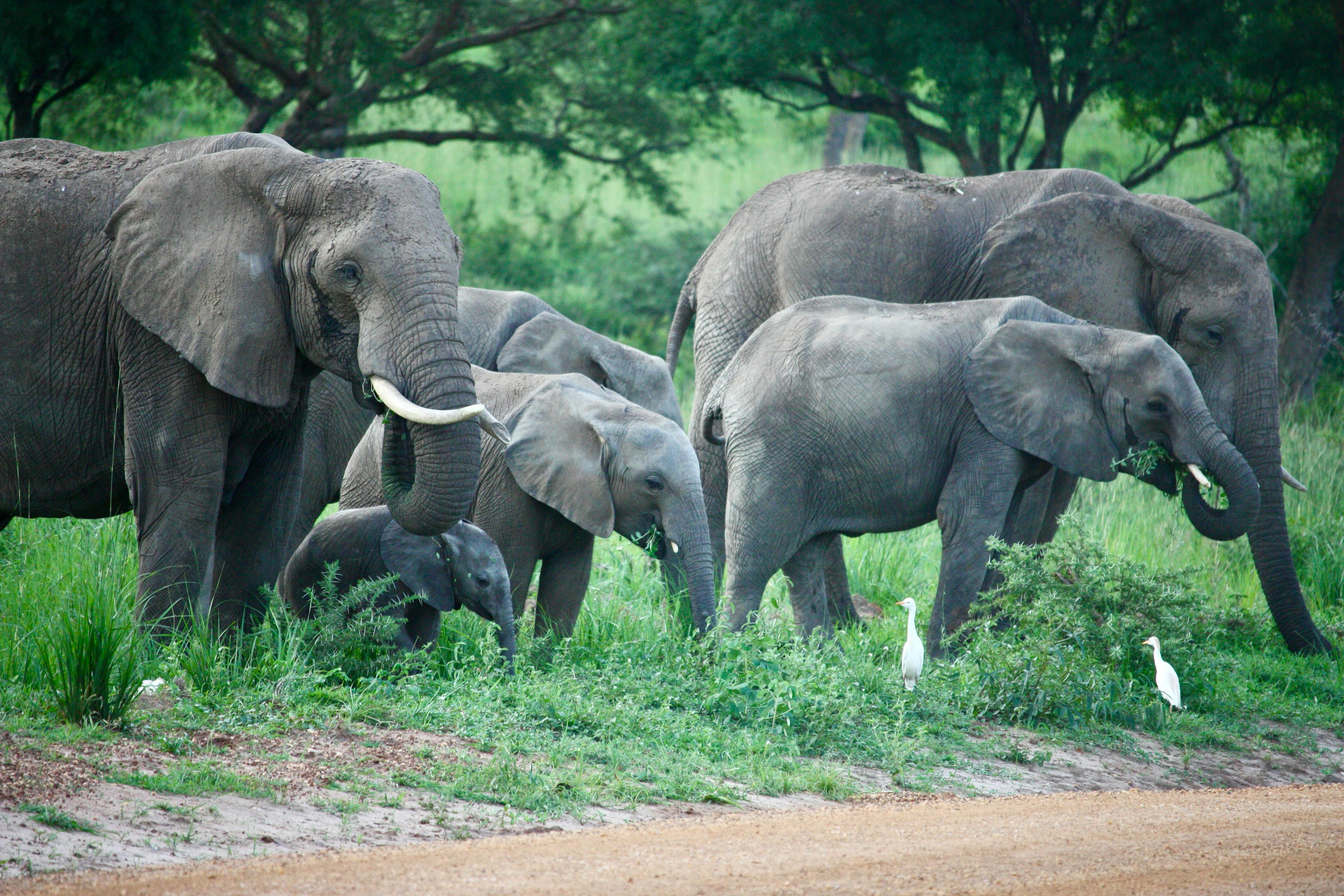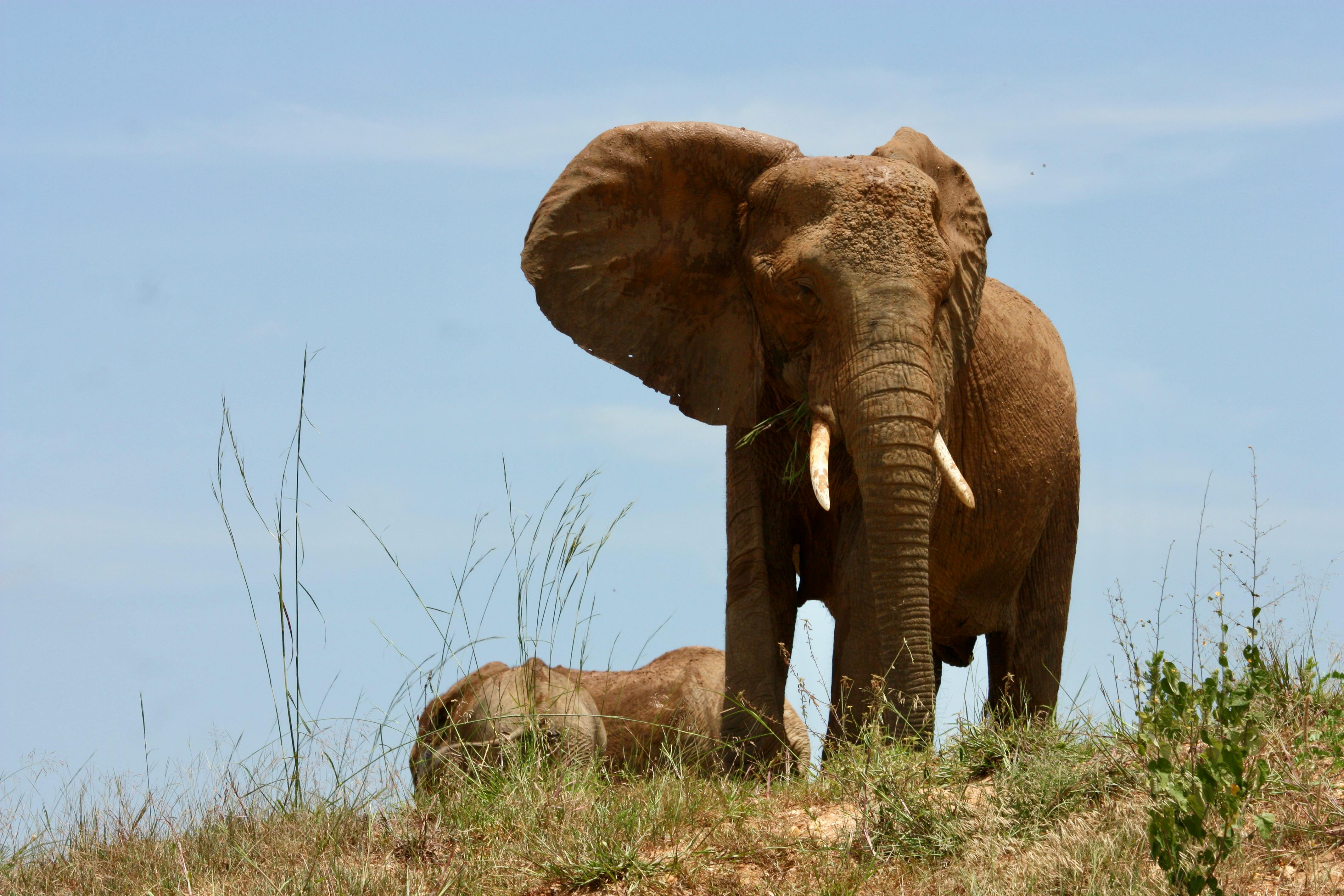What To Wear On An African Safari

Going on an African safari is an exciting adventure! But what should you wear? It is important to wear the right clothing when you go on a safari, as the weather can change quickly and you want to be comfortable and prepared for any situation. Here are some tips on what to wear on an African safari so that you can make sure you get the most out of your experience.When packing for an African Safari, it is important to consider the climate and terrain of your destination. Depending on the season, you will need to bring appropriate clothing and footwear. A light jacket or long-sleeved shirt is recommended for the mornings and evenings when temperatures are cooler. A wide-brimmed hat, sunscreen and sunglasses are also essential. For footwear, opt for comfortable closed-toe shoes that provide good ankle support.
Other items to consider packing include a daypack or small backpack, binoculars, a camera with extra batteries and memory cards, a water bottle, insect repellent, malaria medication (if necessary), a first aid kit and any necessary chargers or adapters. If you plan to camp in some areas during your safari, you may need additional items such as a sleeping bag or tent.
Essential Clothing Items for an African Safari
When planning an African safari, it is important to consider the clothing you will need to make the most of your adventure. Depending on the time of year, temperature and location you are visiting, you’ll want to ensure that you have appropriate clothing for your safari. Here are some essential items to pack when travelling on an African safari:
A lightweight waterproof jacket is essential for any African safari. It can help protect against unexpected rain as well as strong sun. In addition, a pair of trousers that are loose fitting and comfortable will help keep insects away and provide protection from the sun.
Safaris involve plenty of walking so a good pair of sturdy shoes or boots is an absolute must. Choose shoes that provide plenty of support and cushioning and are comfortable enough to wear all day long.
It’s also important to bring layers for warmth during cool evenings or morning game drives. A fleece or light weight down jacket will be sufficient in most parts of Africa. Hats, sunglasses and sunscreen are also important to protect against harmful UV rays.
When packing, remember to choose clothing items that are neutral in colour such as khakis and browns – this helps blend in with your environment making it easier for you to observe wildlife without being noticed!
What Shoes to Wear on an African Safari
When it comes to choosing the right shoes for an African safari, comfort and functionality are key. You want a pair of shoes that will provide protection from the elements, while also allowing you to move around easily. The best type of shoe to wear on an African safari is a sturdy hiking boot or trail running shoe. These types of shoes provide ample support and traction, while also offering plenty of breathability.
In addition, it’s important to choose a shoe that is lightweight and comfortable. A heavy boot can be uncomfortable and difficult to walk in, especially if you’re trekking through thick brush or rocky terrain. When selecting your footwear, consider breathability as well as waterproofing since you’ll likely encounter wet conditions during your safari. To ensure your feet stay cool and dry, look for shoes with mesh panels or air vents for added ventilation.
It’s also wise to choose a shoe with a substantial sole that provides cushioning and shock absorption. You want something that will protect your feet from sharp rocks and uneven surfaces while still providing adequate grip on slippery surfaces. Lastly, make sure to break in any new shoes before embarking on your safari – this will help prevent any blisters or discomfort during the trip!
Tips for Dressing Appropriately on an African Safari
When it comes to dressing for a safari in Africa, it’s important to be mindful of the climate and terrain you’ll be encountering. It’s also important to dress appropriately so as not to offend local sensibilities or draw too much attention. To make sure that your safari experience is both comfortable and culturally sensitive, here are some tips for dressing appropriately on an African safari.
First and foremost, it’s important to dress in layers. The weather can change quickly in Africa, so having a few different layers of clothing can help you stay comfortable no matter what the conditions might be. Lightweight fabrics that are breathable and wick away moisture are best for this type of environment.
It’s also important to dress modestly while on safari. Bright colors and revealing clothing can draw unnecessary attention from both animals and people alike, so try to stick with neutral colors such as khaki, olive green, or brown. A wide-brimmed hat is also a must-have accessory – not only will it protect you from the sun, but it will also help keep you cool during those hot afternoons spent in the bush.
Finally, don’t forget to bring along a pair of sturdy shoes or boots that can handle tough terrain and uneven surfaces. Hiking boots or shoes with good treads are best for this type of environment as they provide extra grip when walking over slippery surfaces like mud or rocks. Additionally, bring along a pair of sandals or flip-flops for times when you’re not trekking through the bush – these will be much more comfortable than wearing heavy boots all day long!
Accessories to Bring on an African Safari
Pack all the essentials when you are heading on a safari in Africa. Properly equipped with the right accessories, you can make your trip an exciting and memorable one. Here is a list of must-have accessories to bring on your African safari:
Sunglasses, Hat, and Sunscreen
The African sun can be scorching at times, so it is essential to protect yourself with sunglasses, a hat, and sunscreen. Choose sunglasses with UV protection to prevent any eye damage from the sun’s rays. Also make sure your hat has a brim wide enough to cover your face and neck.
Clothing
Choose light, breathable clothing for your safari adventures. Natural fabrics such as cotton and linen are best as they do not trap heat. Long-sleeved shirts and trousers are also advised for protection from insects such as ticks and mosquitoes. Consider bringing some light rain gear in case of sudden showers.
Binoculars
Spotting wild animals can be difficult if you do not have binoculars. A good pair of binoculars allows you to see the details of animals from afar without disturbing them. Make sure the binoculars you choose have good magnification power so that you can see clearly even from a distance.
Camera Equipment
Capture every moment from your African safari with a camera or camcorder. Bring extras like memory cards or batteries so that you don’t run out of storage space or power during your trip. If possible, bring a tripod for steady shots of animals in motion.
First Aid Kit
Accidents may happen during long tours in Africa so it is important to bring a first aid kit with basic medical supplies such as antiseptics, bandages, painkillers, insect repellent, etc. Make sure the first aid kit is easily accessible in case it is needed.
Having essential accessories on hand will ensure that you have an enjoyable time on your safari in Africa!

Seasonal Clothing Considerations for an African Safari
When planning a safari to Africa, it is important to consider the season in which you plan to visit. The climate and weather conditions on the continent vary greatly, and the clothing you choose should be appropriate for the season and region. Knowing what type of clothing to pack for an African safari is important to ensure a comfortable and enjoyable experience.
Summer Season
In summer, temperatures can get quite high during the day, so light and airy fabrics such as cotton are ideal for keeping cool. Long-sleeved shirts and trousers can provide protection from the sun, while also ensuring that mosquitoes do not have easy access to your skin. You should also bring a lightweight hat or scarf to protect your head from direct sunlight. Lightweight shoes are also a must during this season, as thick-soled shoes can become quite uncomfortable in hot weather.
Winter Season
In winter, temperatures can drop significantly, so it is important to bring warm clothes such as coats, sweaters, hats and gloves. It is also advisable to wear layers of clothing so that you can easily adjust them depending on how cold or hot it gets during the day. Sturdy boots are essential in winter as they will provide extra warmth and protection against wet ground or icy conditions.
Rainy Season
The rainy season brings heavy downpours which can last for days at a time so waterproof clothing is essential. Raincoats and ponchos are ideal for keeping out moisture while still allowing air circulation around your body. Waterproof shoes will also keep your feet dry in wet conditions. A lightweight umbrella may also be beneficial if there is no shelter available nearby when it rains heavily.
Overall, it is important to consider the weather conditions of an African safari before packing your clothing items so that you can have an enjoyable experience on your trip without being uncomfortable due to inappropriate clothing choices.
Essential Safari Gear
An African safari can be one of the most exciting and rewarding experiences in life. However, to ensure that your trip is enjoyable and safe, there are several essential items you will need to bring with you. From clothing and bug repellent to cameras and binoculars, here are some of the must-have accessories for an African safari.
Clothing
When planning for an African safari, it’s important to choose clothing that is comfortable and lightweight. Avoid wearing bright colors as they can attract insects or alert animals to your presence. Opt for neutral colors such as khaki or olive green that blend in with the surroundings. Long-sleeved shirts, pants, hats, and comfortable shoes are a must for protection against insects. Don’t forget a raincoat or jacket in case of sudden showers!
Bug Repellent
Mosquitoes, ticks, ants and other insects are common in Africa so it’s important to bring along bug repellent that is safe for both skin and clothes. Repellent containing DEET is considered one of the most effective against mosquitoes while citronella candles can help deter other pesky critters.
Cameras & Binoculars
Bringing a camera or binoculars can make your experience even more enjoyable by allowing you to capture amazing wildlife shots or get a closer look at animals from afar. Invest in a good quality pair of binoculars for maximum zoom capabilities when viewing animals from far away distances. Also consider investing in extra lenses for your camera if you plan on taking close-up shots of wildlife during your safari.
Sunscreen & Sunglasses
The sun’s rays can be strong so it’s important to protect yourself with sunscreen and sunglasses when exploring outdoors during an African safari. Look for a water-resistant sunscreen with an SPF of at least 30 so that you’re protected from both UVA & UVB rays even when sweating or swimming. A good pair of sunglasses will also help keep your eyes safe from the sun’s glare.
First Aid Kit & Medications
It’s essential to bring along a first aid kit on any adventure but especially one that takes place in Africa where medical resources may not be easily accessible. Pack bandages, antiseptic ointment, pain relievers such as ibuprofen or acetaminophen, antihistamines if you’re allergic to insects bites or stings among other necessary items like tweezers and safety pins.
Additionally, make sure you bring along any medications you may need such as allergy medication or antibiotics just in case they are needed during your trip.
Is There a Difference Between What to Wear on an African Safari and What to Wear on Safari in South Africa?
Whether you’re exploring the savannahs of Kenya or the reserves of South Africa, understanding regional variations is key. For South Africa, consider lighter fabrics for warm days and layers for cooler evenings. Check out these essential clothing tips for your safari to ensure comfort and safety throughout your adventure.
Tips for Packing Lightly for an African Safari
Traveling to an African safari is a once in a lifetime experience and you want to make sure that you are prepared for any circumstance. Packing lightly is key to making sure that you are able to enjoy your trip without any unnecessary hassles. Here are some tips for packing lightly for an African safari:
First, consider the climate of the area you will be visiting. Make sure to pack clothes that are lightweight and breathable, as well as comfortable. It’s also important to pack clothes that can be layered so that you can adjust your clothing depending on the temperature or weather changes.
Second, make sure you have all the necessary items with you such as sunscreen, insect repellent, binoculars, and a hat or head covering. Bring only essential items and leave room in your bag for souvenirs and other items that may come up during your travels.
Third, consider bringing along lightweight camping gear if you plan on staying in remote locations or camping out under the stars. This includes a sleeping bag, tent, flashlight, matches/fire starter, and a tarp or groundsheet.
Finally, bring only one small bag with essential things like medication, documents (passport/visa), money/credit cards and camera equipment. Make sure to keep these items in a secure place so they do not get lost or stolen.
By following these tips for packing lightly for an African safari, you can rest assured that your trip will be enjoyable and hassle-free!

Conclusion
An African safari is an exciting and unique experience like no other. To make the most of your adventure, it is important to pack and wear the right clothing. Choose items that are comfortable, lightweight, and made from natural materials. Opt for neutral colors such as beige, khaki, and olive green to blend in with the surroundings. Remember to bring along a lightweight raincoat or poncho in case of rain. Lastly, don’t forget to pack a hat and sunglasses for protection from the sun. With these essential items packed away in your bag, you are sure to have an unforgettable African safari experience.
Remember that no matter what you choose to wear during your African safari, the most important thing is to be comfortable and enjoy your trip!
